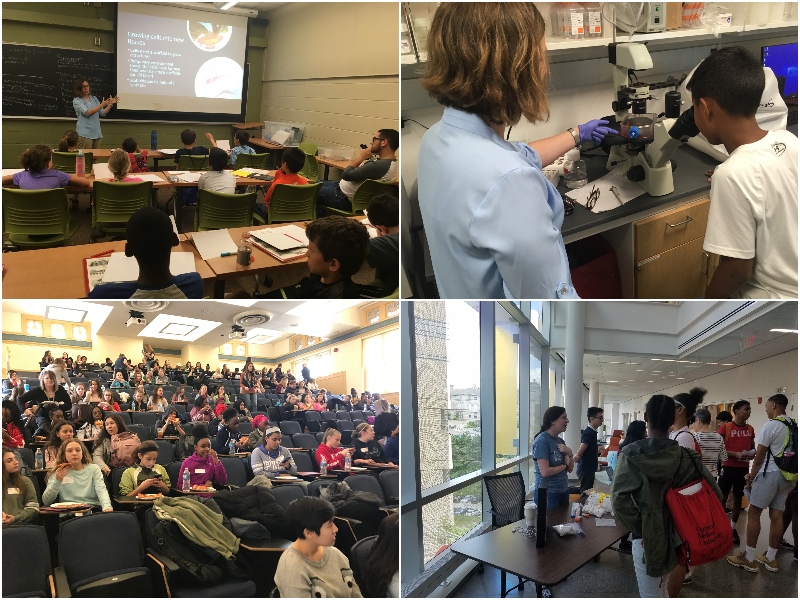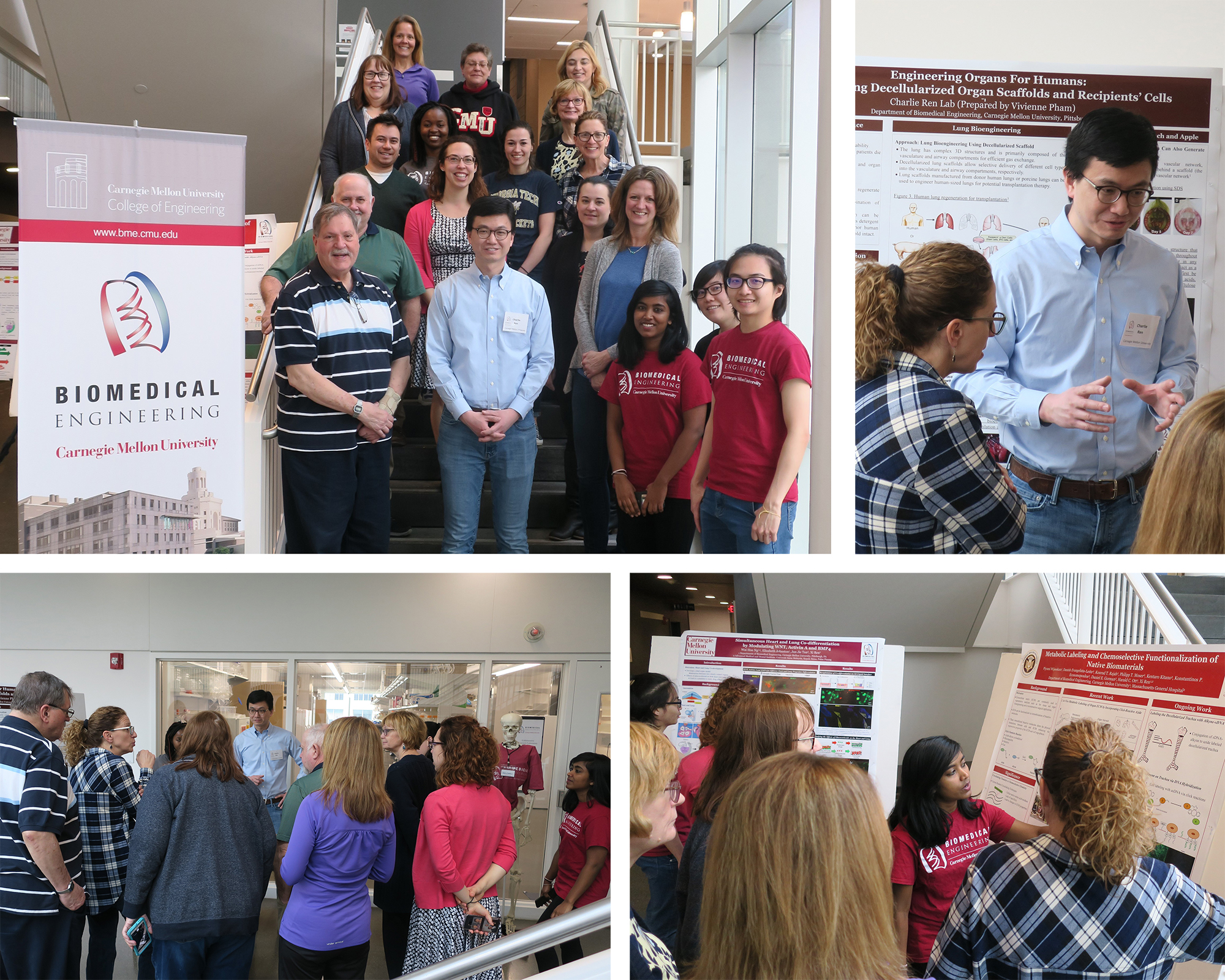BME Outreach Activities
BME Educational Modules (Dr. Conrad Zapanta, Dr. Judith Hallinen)
Since 2020, Carnegie Mellon students have developed Biomedical Engineering Educational Modules that can be used by teachers to introduce their students to a variety of topics that are not typically taught in middle or high school classrooms. Instructors for the project courses were Dr. Conrad Zapanta, Biomedical Engineering and College of Engineering Dean's Office, and Dr. Judith Hallinen, Assistant Vice Provost for Educational Outreach. Science educators consulted on the initial project to ensure that the lessons are aligned with the expectations of classroom teachers. The materials include presentation slides, activities, games, and supporting documentation to help secondary school students learn about BME careers and areas of research.
The modules can be found via the Gelfand Center.
Abbott Lab's Outreach Programs
Middle school day
Professor Abbott hosted the BME session at the annual Society of Women Engineers (SWE) event at CMU. The event aimed to help high school students get a better idea of what engineering entails and offer them guidance and advice for pursuing a career in engineering. The BME session focused on the heart and had participants analyze the EKG signals of student volunteers. The students left with a better understanding of how biomedical engineering interfaces with human patients.
You are what you eat
Professor Abbott hosted a class for grades K-2 through the Gelfand Outreach Center. The objective of the class was to 1) explore the path food takes through our digestive system, 2) learn some of the main processes that aid in the digestion of our food – peristalsis, mechanical digestion, and chemical digestion, and 3) visualize the approximate size of our digestive system. Esophageal (size representation: straw) peristalsis was demonstrated with panty hose and a ping pong ball, digestion in the stomach (size representation: small plastic bottle) was demonstrated with saltines and a small amount of soda in a bag, the process of liver bile breaking down fat in the small intestine was demonstrated with milk, food coloring, and soap, and finally the size of the small (15 feet) and large intestine (5 feet) was measured out on the floor. Overall, the students left with a better understanding of how food fuels the body.
Biomedical Engineering hosts students from Homewood Children’s Village
The Abbott lab hosted lab tours for students in grades 9-11 from the Homewood Children's Village. Students were shown the different steps of silk scaffold preparation and discussed characteristics of biomaterials. Tissue engineering applications were also discussed to encourage enthusiasm for some of the applications of biomedical engineering. At the end of the tour students had a better idea of what a biomedical engineering researcher does.
Engineering sampler class
The Abbott lab did a class on Biomedical Engineering for the Gelfand Outreach Center focused on biomaterials and tissue engineering. Students were introduced to tissue engineering, biomaterials, and how cells are grown in the lab. The students were then given a lab tour to see all of the equipment and looked at cells under a microscope. At the end of the course the students left with a better idea of how cells are grown into tissues in the lab.

Lab Tours
The Abbott lab hosted lab tours for high school and undergraduate members of the National Society of Black Engineers. The goal was to introduce the students to laboratory equipment and some of the research that was being done in the lab. Students asked questions and talked to researchers about their projects. At the end of the tour students had a better idea of how researchers grow tissues in the lab.
Explore Engineering
The Abbott lab hosted a tissue engineering booth at the annual "Explore Engineering Day" at CMU for students in grades 3-8. The purpose of the booth was to introduce students to biomaterials. Jello hydrogels of different stiffnesses and silk cocoons/fibers/scaffolds were available for children to interact with. Students left with a better understanding of how biomaterials are used in tissue engineering approaches for different parts of the body.
Ren Lab's Outreach Programs
Educational poster session with local high school students
Dr. Charlie Ren and students of the Engineering Molecular Cell Biology Class held an educational poster session with our high school visitors from the Gateway School District. Excited to convey and discuss intriguing biomedical concepts with the future engineers!
Discussion with local high school teachers to foster collaboration on biology education
Dr. Charlie Ren met with 11 local high school biology teachers to discuss how to better incorporate biomedical engineering, especially tissue/organ engineering, into high school curriculum. We appreciate the teachers taking a Saturday morning to visit us and share their enthusiasm about biomedical engineering.
